Citizen Kane (1941)
Watching a Masterpiece
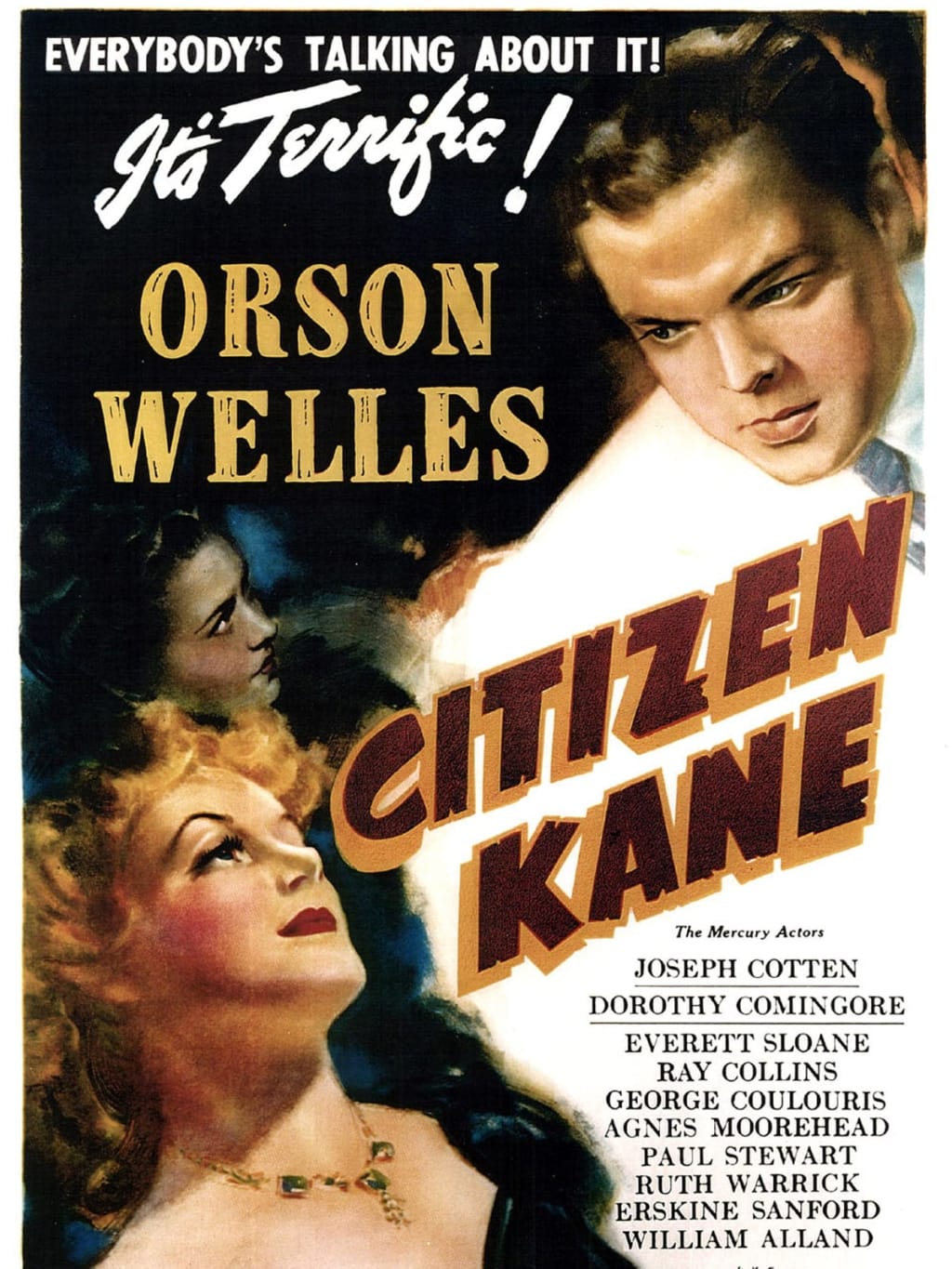
I have this (perfectly normal) ambition to be a 1940s Hollywood screenwriter. Therefore, it might surprise you that I hadn’t seen Citizen Kane until recently.
But Rachel, it is considered to be the pinnacle of the art of screenwriting - how did you succumb to this oversight?
Well, just to add some realism into my (perfectly normal) ambition and to defend myself against accusations of not committing to the role, not that many people saw Citizen Kane in 1941 either.
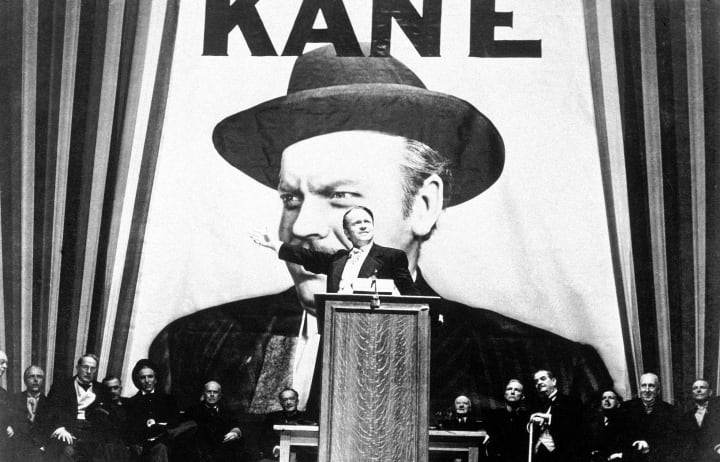
In 1940s Hollywood, Orson Welles was being courted by the great and the good and, more importantly, the greedy. The studio executives wanted him on their side. He had made great waves in the world of theatre and as the architect of the “War of the Worlds” radio broadcast, famous for inciting a panic that there had been an alien invasion.
It was George J Schaefer who managed to bag the theatrical genius, by offering him a contract with RKO Studios that guaranteed him a degree of artistic control virtually unheard of in Hollywood. His contract obliged him to produce, direct, write and act in two feature films. Remarkably, he was given freedom to develop his own story, to cast the films, choose the crew, and to have control over editing.
It was thought he would use his success from stage and radio and adapt a classic for the big screen. He attempted to script Joseph Conrad’s Heart of Darkness, but struggled to find a way to make the wordiness and interiority of the main protagonist fit a visual medium. So, along with Joseph Mankiewicz he developed an original screen play, Citizen Kane.
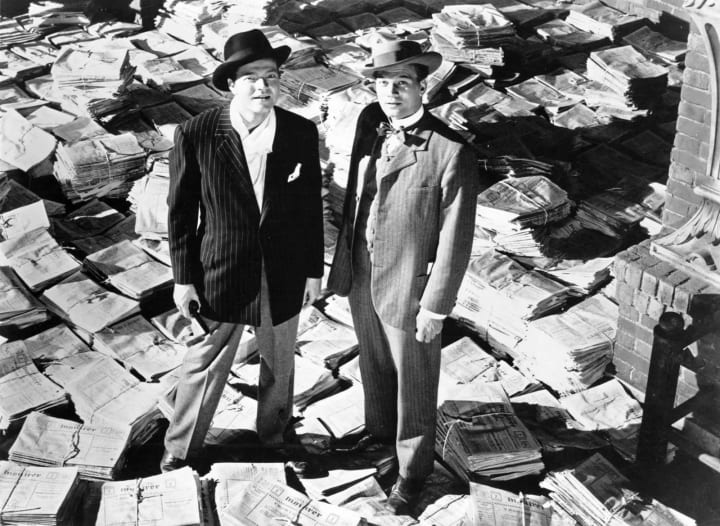
The resulting film received high critical praise, but failed to recoup its costs at the box office. This gap between industry perception and public reception is a lesson in Hollywood politics.
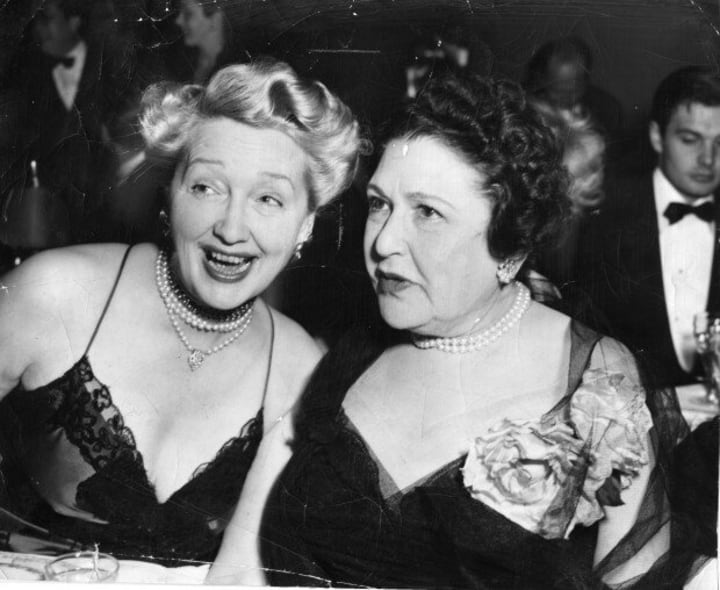
Citizen Kane is a tale about telling stories. More precisely, it is about how power and wealth determine who gets to tell stories and who gets to obscure truth in the process.
It is about the life of Charles Foster Kane. It starts at the end. A man on his deathbed, the word “Rosebud” and a snow globe falls and shatters. Then a newsreel obituary follows, a bombastic proclamation of greatness, wealth and ambition of a newspaper man. But the newsreel producers want to know – where’s the real story? And reporter Jerry Thompson is tasked with finding the meaning behind that final word.
And so the film starts afresh, and we trace the people in Kane’s life to get a fuller picture of the boy raised by bankers, to become the richest man in the world, buying a newspaper and converting it into a scandal-driven, muck-racking tabloid. Kane marries twice, his political ambition thwarted by the existence of his mistress. Finally our anti-hero dies alone in a castle on a vast estate.
It is a simple tale of the American dream - of log cabin to White House - mixed in with the fables of poor, little rich boy. Nothing too controversial. But the devil is in the detail.
Despite Welles’ protestations, Charles Foster Kane’s fiction has a number of overlaps with the facts of the very real William Randolph Hearst.
W R Hearst was a newspaper tycoon with his publications favouring sensationalism, celebrity gossip and human interest stories. He was married to Millicent Wilson, a chorus girl, and they had five sons together. His affair with film actress and comedian, Marion Davies, however, ended his political ambitions. His political affiliations moved towards the right as his wealth and influence spread. He was opposed to Roosevelt’s New Deal and the rise of Trade Unions. He was a collector of art and real estate, living in his final years on the vast estate of San Simeon. He was close to bankruptcy on a number of occasions, but would not sell his publications.
Much of this is mirrored in the film. There are just enough differences for Welles to be able to claim plausible deniability.
But that is not how Hearst saw it.
Hedda Hopper (a gossip columnist who worked for a rival group of papers) showed up to the press-screening uninvited and wrote a negative review, claiming it was a "vicious and irresponsible attack on a great man”.
Friday magazine wrote a point-by-point comparison of the film with Hearst’s own life. And drew attention to the fact that Louella Parsons (Hearst’s gossip columnist) had been strung along by Welles in relation to the true meaning of the film.
Hearst furious and embarrassed, tried to use his massive resources to suppress the film. The result was that the film received a limited distribution, costing the film’s box office and Welles’ career opportunities.
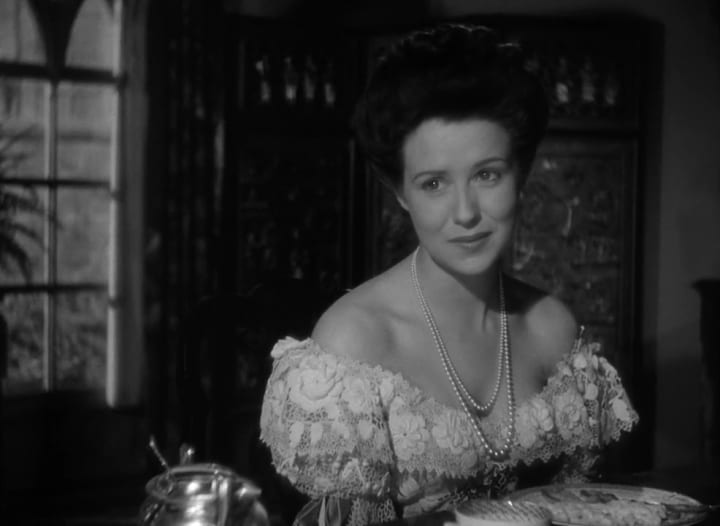
It wasn’t until after the second world war when American movies flooded the European markets again, that the movie became canonical and Welles declared a cinematic genius.
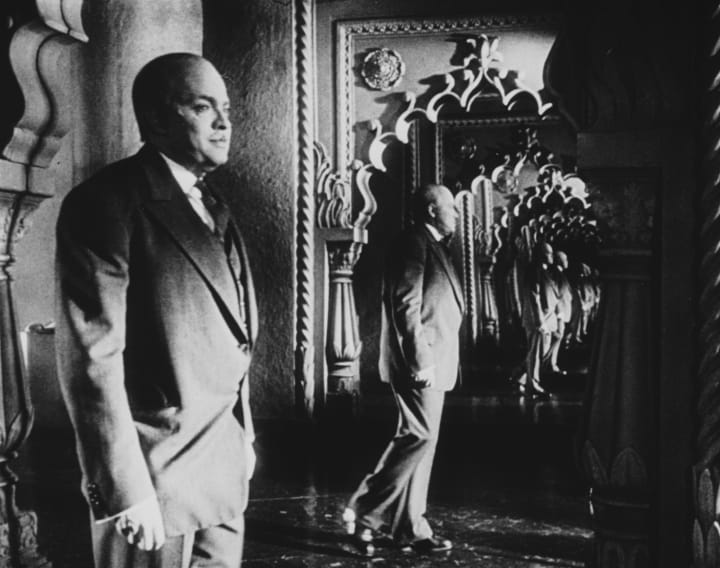
As someone who loves 1940s film, I was aware of all this, but I hadn’t lived it. I wasn’t sure it would still mean much to me.
I also avoided watching the film because my Dad had once inadvertently given away the ending and the meaning of “Rosebud”. (By the way, no spoilers here, but that knowledge didn't really matter).
I was also aware of the high regard with which the film was held. It is frequently cited as the greatest film ever made. The BFI put it at number one for 40 years of greatest films and it topped the AFI’s 100 years and 100 movies list in 1998 and the 2007 update. And rather than that making me want to see the film, it made me think that it might be, you know, a bit serious, respectable, rather than something entertaining. The accolades and the adoration of the cinematography, editing, experimental sound design, were more off-putting than inviting.
But then I realised that I love Casablanca and that was number three in the same polls, so maybe I really should give it a go. I wanted to see what it has to say to a twenty-first century viewer. Does it stand the test of time?
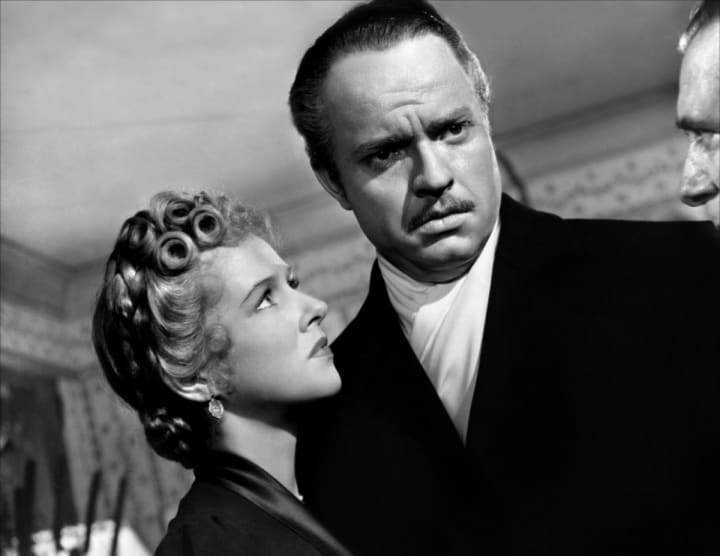
Well, sort of. The link to Hearst may be broken by time, but we live at a time of immensely rich, proud men dominating our media spaces. The media has changed from print, through to the TV screen and now to social media. Could I see Zuckerberg or Musk in the portrayal of Citizen Kane?
Yes, I could. And there is something remarkably entertaining, exhilarating even, about watching a powerful man be satirised.
There is a joy in watching a man who feels himself above the news, above truth and objectivity, become the news.
There is the schadenfreude of watching a man try to attach value to things when he is struggling to feel loved or loveable.
There is the political and there is the individual psychology encapsulated in a plot that is told from many angles.
“If I hadn’t been rich, I might have been a really great man!”
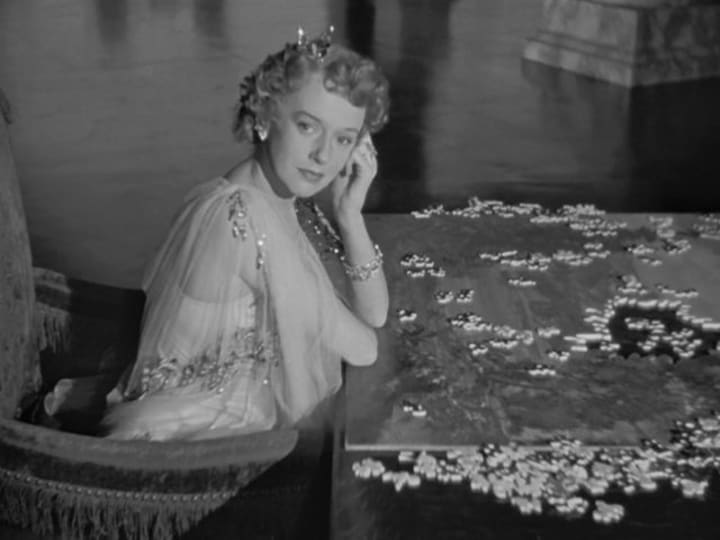
There are two gifts that watching the movie has granted me.
First, it has shown me that story-telling can be all things – intellectual, experimental, ambitious and entertaining.
Second, is the message – vast wealth hoarded whilst others struggle makes a nonsense of our humanity. Kane is a bitter old man, dying alone. No-one was nourished by his tabloid journalism. He could not buy his way out of his insecurity.
My imaginary 1940s screenwriter persona feels invigorated because I’ve watched this film.
Now I just need to write a masterpiece of my own, which maybe, just maybe, can centre a different kind of life. I’m particularly entertained by the idea of writing about Kane’s second wife, Susan Alexander, and Kane’s attempts to buy her fame, and how this forces her life in and out of public view.
If he hadn’t been rich, she might have been a happy woman.
Watch this space!
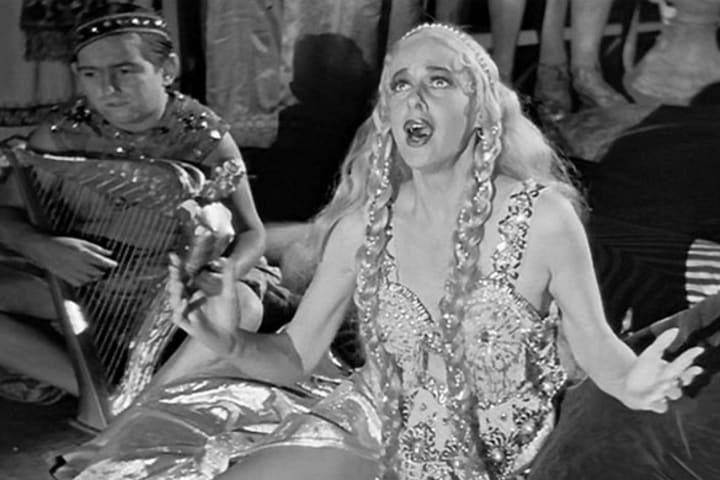
If you've enjoyed what you have read, consider subscribing to my writing on Vocal. If you'd like to support my writing, you can do so by a regular pledge or leaving a one-time tip. Thank you.
About the Creator
Rachel Robbins
Writer-Performer based in the North of England. A joyous, flawed mess.
Please read my stories and enjoy. And if you can, please leave a tip. Money raised will be used towards funding a one-woman story-telling, comedy show.
Enjoyed the story? Support the Creator.
Subscribe for free to receive all their stories in your feed. You could also pledge your support or give them a one-off tip, letting them know you appreciate their work.
Reader insights
Outstanding
Excellent work. Looking forward to reading more!
Top insights
Compelling and original writing
Creative use of language & vocab
Easy to read and follow
Well-structured & engaging content
Excellent storytelling
Original narrative & well developed characters
Heartfelt and relatable
The story invoked strong personal emotions
On-point and relevant
Writing reflected the title & theme


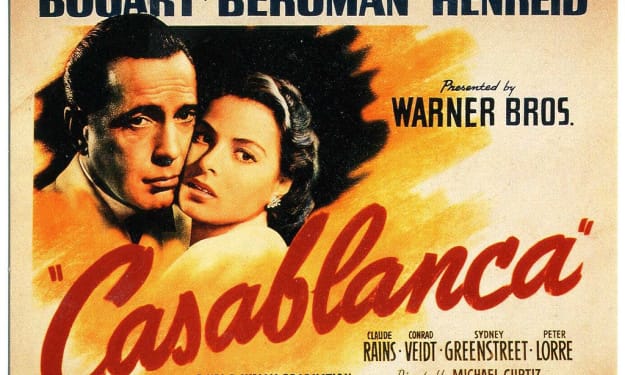
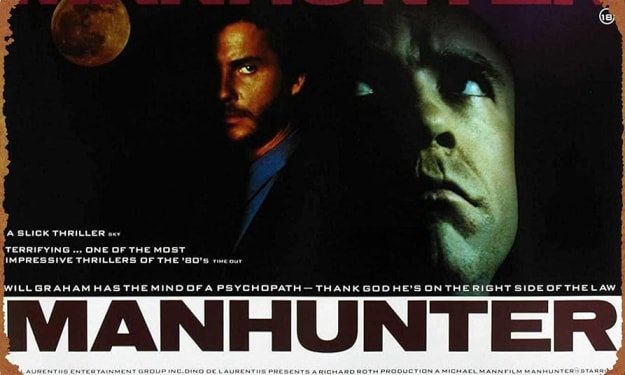


Comments (3)
Nothing has changed in the world in the 80 years since this movie was made, only the names have changed (Rupert Murdoch) and the rich and powerful have lost any sense of responsibility for the tactics they use to keep us under the thumb. I have seen the movie, many moons ago, but I was probably too young to understand the politics of it. Great review as always. Good luck with your version.
I feel I should watch this movie again. 1940s Hollywood was ornate and creative as the architecture and cars and the nuance of films during that decade of structuring of 8 millimeter films, black and white and the cutting of film to the world.
Awesome take! Really great to read a report by a first-time viewer. Can't wait for your pitch on the life of Susan Alexander. Unlike her said-to-be real-life counterpart, Marion Davies, Susan really didn't have any talent - or at least not in the opera realm - what might she have been without Kane pushing her around?